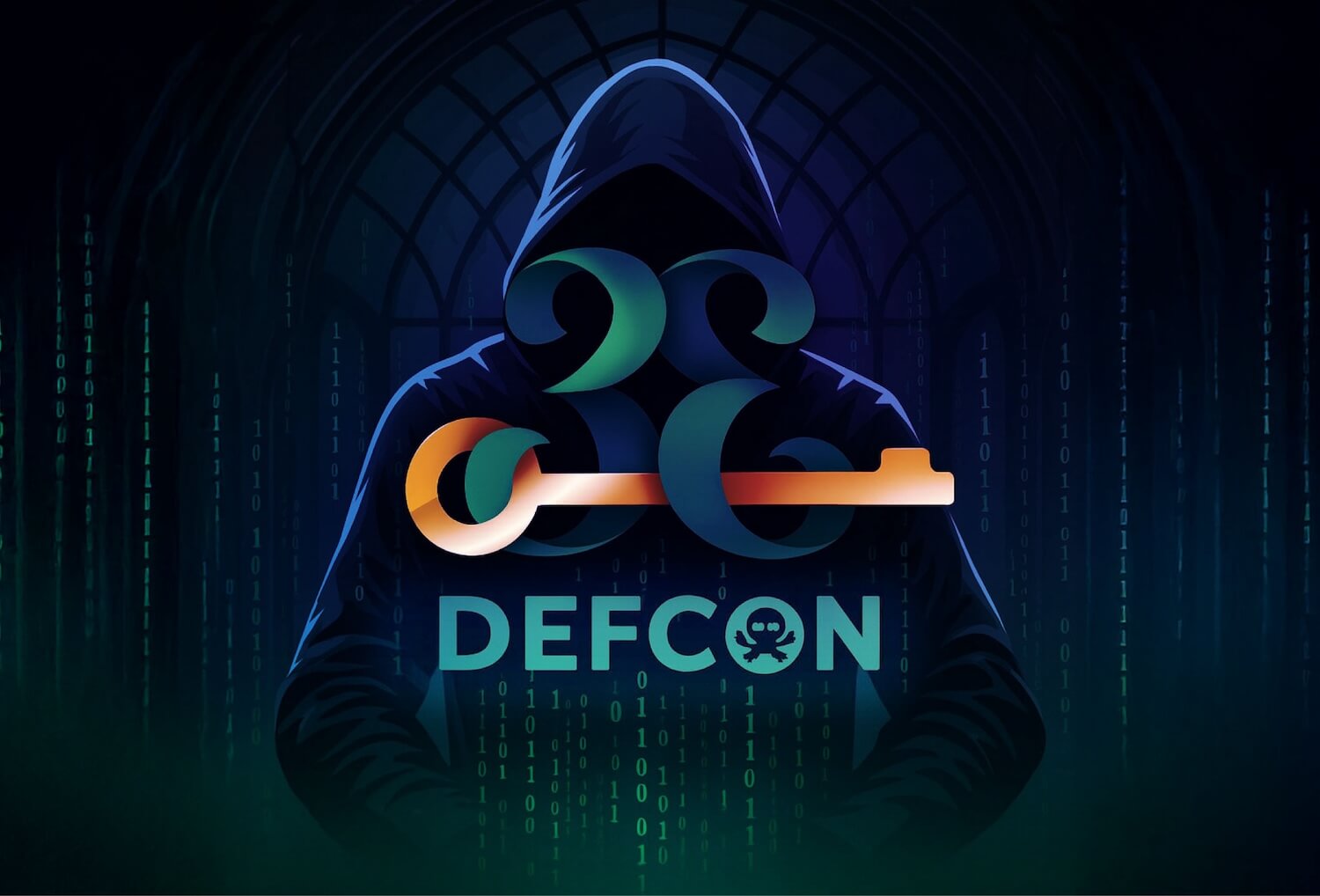DEF CON is chaotic in the best possible way. The first time Chris Nelson went, he was nervous. Not just because it’s one of the most famous hacker conferences in the world, but because he’s introverted and doesn’t love crowds. DEF CON draws thousands of people—tinkerers, programmers, hackers, engineers, educators, weirdos, dreamers—and most of them are just like Chris. Curious.
That’s the secret about DEF CON. You don’t have to be a hacker in the Hollywood sense. You don’t have to show up in a hoodie, crack a firewall in thirty seconds, or know the difference between AES and RSA. You just have to want to learn something. Chris wasn’t sure what to expect, but once he walked in, he found himself surrounded by people chasing ideas, asking questions, building strange devices, and poking at the edges of the digital world. He was home.
A Space for Every Curiosity
Every corner of DEF CON holds a different obsession. There are villages dedicated to physical security, AI, embedded electronics, medical devices, lockpicking, social engineering, and more. Want to learn how to defeat a hotel lock? There’s a workshop for that. Interested in how AI is being used in malware detection? There’s a talk. Curious about building your own cellular network? You can find someone who’s done it and is happy to explain.
Chris tried a little bit of everything. He struggled through lockpicking exercises, listened to war stories from penetration testers, and wandered through a dense forest of talks, demos, and experimental tech. But it was the RF Village that pulled him in.
The Invisible Playground: Discovering RF Hacking
Radio frequency hacking is a unique kind of magic. It deals with all the invisible signals floating around us—Wi-Fi, Bluetooth, RFID, NFC, garage remotes, key fobs, and everything in between. At DEF CON, the RF Village is set up like a playground, filled with hands-on exercises, challenges, and hardware stations that let you peek behind the curtain of everyday tech.
That’s where Chris found the RF Capture the Flag (CTF) competition. It’s a multi-day event that throws you into real-world problems, asking you to find “flags” by completing technical challenges. Some flags involve decoding signals, some require gaining access to simulated Wi-Fi networks, and others involve cloning RFID badges or manipulating ham radio systems.
It sounds intimidating, but the community is incredibly welcoming. There’s no shame in being new—people walk you through what you don’t understand. You learn by doing, and the village makes space for anyone to experiment, regardless of skill level. Chris had never competed before, but after trying it once, he was hooked.
Getting Started: The First Lab Is Your Living Room
One of the biggest barriers to entry in hacking is just knowing where to begin. For RF hacking, it’s surprisingly accessible. Chris recommends starting with a cheap Wi-Fi router and setting up a test network at home. You can experiment with different encryption types, monitor signal activity, and test tools without risking anyone else’s security.
You’ll find no shortage of tutorials, walkthroughs, and forums to help you along the way. But what makes the learning really click is understanding the protocols and theory behind the tools. Reading up on how Wi-Fi handshakes work or how NFC chips transmit data gives context to the commands you’re running. It turns button-pushing into insight.
That blend of practice and knowledge is where the learning happens. And if you’re someone who wants a playful but powerful tool to explore the space, there’s one device that always comes up.
The Flipper Zero: A Gateway to RF Exploration
It looks like a toy. A small plastic device with a pixelated dolphin on the screen. But don’t let that fool you. The Flipper Zero is a versatile multi-tool for RF hacking. It can scan, clone, emulate, and interact with all kinds of signals. Chris uses it to experiment with garage openers, test NFC tags, even mess around with his kid’s Amiibo characters in Zelda.
The Flipper is a perfect starting point for people who want to see what’s floating through the air around them. Load up some custom firmware, spend a weekend playing with it, and suddenly the invisible spectrum of daily life becomes visible. It’s not about causing trouble—it’s about understanding how these systems work so you can better protect yourself and your environment.
Learning to Hack Is Learning to Think Differently
Chris likes to say RF hacking changed how he thinks. Once you start to see the vulnerabilities and assumptions baked into the world’s infrastructure, you become more alert, more curious, and maybe a little more skeptical. But you also become empowered.
When you learn how to clone a hotel keycard, you don’t walk around breaking into rooms. You start asking why your hotel still uses technology that can be easily compromised. When you understand how a signal handshake works, you don’t brag about cracking it—you explain how to improve it.
That’s the spirit of DEF CON. It’s not about breaking things. It’s about exploring how things work, where they break, and what we can do to build something better. It’s a chaotic, joyful, deeply human event. And for Chris, it’s become an annual pilgrimage.
Come for the Curiosity, Stay for the Community
If you’re thinking about going to DEF CON, the best advice is simple: say yes. You don’t need to know everything. You don’t need to compete. You just need to be curious. Wander into the RF Village. Ask dumb questions. Try weird tools. You might find yourself staying up late in a hotel room with your laptop, trying to crack an imaginary Wi-Fi network simply because it’s fun and you’re learning.
Chris will be there this year, competing in the RF Space CTF again. He may or may not win. But that’s not the point.
The point is: he’ll be learning something new. And if you show up, you probably will too.
Resources:
2600: The Hacker Quarterly https://www.2600.com/
Proxmark3 https://github.com/RfidResearchGroup/proxmark3
Flipper Zero https://flipperzero.one
r/DEFCON (Reddit) https://www.reddit.com/r/defcon/
DEF CON RF Village (RF Hackers Sanctuary) https://rfhackers.com/
Blacklisted! 411 (Internet Archive collection) https://archive.org/details/blacklisted411







.png)





.png)
